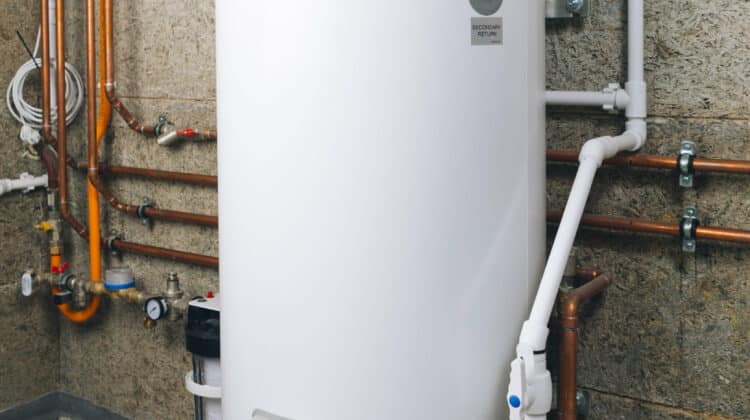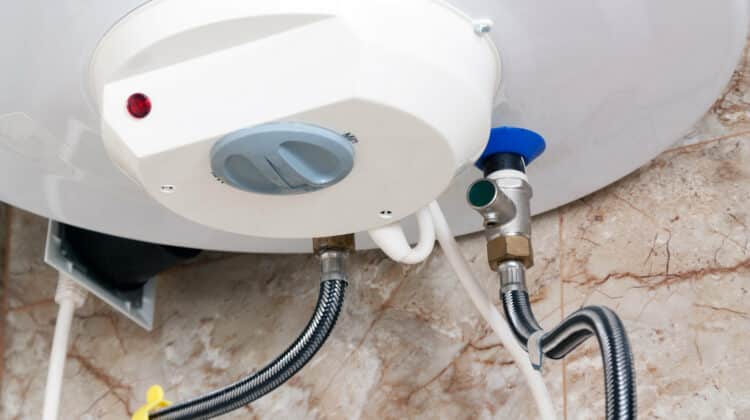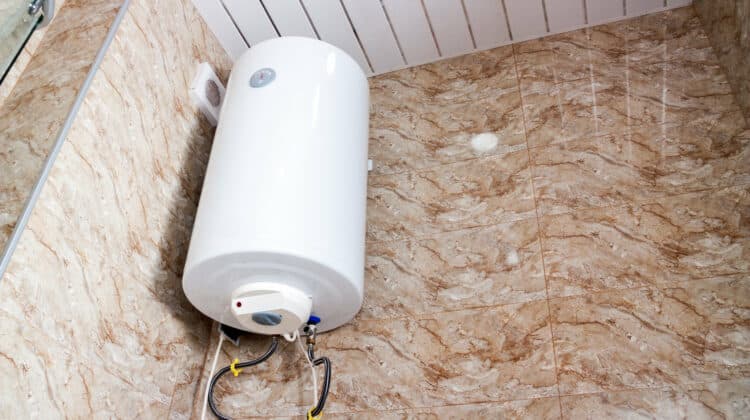Usually, the positioning of a water heater will determine its optimal performance. Because water heaters are made from several brands and come in different models. It is, however, best to install a water heater vertically.
Since a lot of individuals are trying to save up space at home and glam up with interior decors, they can be seen putting up their water heater in either horizontal or vertical position.
Will laying a water heater down optimize its best performance? Let’s find out.
Table of Contents
How does a water heater work?
Before we conclude on whether laying a water heater down will optimize its best performance, it is crucial to understand how a water heater operates. The operation of a water heater is quite simple.
First, the water heater works on the foundation of thermal stratification. This implies retaining the temperature of the water in the upper area at an increased temperature for use such as bathing while the temperature of the water at the bottom of the tank is kept at a lower temperature.
Following the above temperature, laying a water heater down will affect the flow of water and its circulation inside the tank.
In addition, if laid down, the pipe that circulates hot water will no longer be fixed at the top of the tank but the center, which makes it hard for water to flow easily. Sadly, laying a water heater down could cause air pockets to reduce the volume of hot water.
How long does a water heater last?
A normal residential water heater could last between 8-10 years, which is the typical life span. But when it exceeds this time frame, it is expected to start malfunctioning.
What signs do you need to know it’s time to change a water heater?
As said, a normal residential water heater could last between 8-10 years. But when it exceeds this time frame, signs will manifest that it needs to be changed.
A few of these signs could be:
- Rusty water — Most water heaters are made of steel being the strongest material fit for the construction of a water heater. When deterioration takes a hold of a steel tank, it extends to other parts and this leads to leaks with visible rusty water.
- Noise — As the water heater ages, clapping noise will start to arise louder as the tank heats the water. The water heater will start having difficulty in heating. When all these signs spring up, you’ll know that it is time to replace your water heater.
Is it easy to move a water heater?
Moving a water heater is not as easy as it seems. You will need to consider the vehicle that will convey the water heater without causing damage and the right way to position the water heater without cracking the glass liner.
How can you move a water heater?
- Ensure that the water heater is completely turned off. The power of your water heater will likely be different depending on whether it is a gas water heater or an electric water heater.
- Carefully let the water out
- Separate the vent pipe and draft hood to ensure the pilot light is turned particularly if you are using a gas water heater.
- Disconnect the pipe.
- Use your dolly and glide the water heater to the car and gently move into the vehicle.
How can you avoid damage when moving a water heater?
The possible way to avoid damage when moving a water heater into a building is by placing it in a vertical position.
The reason for this is that no road bumps will be able to crack the glass lining in this position nor will it bend or break the anode rod. That’s why it is best to transport the water heater with either a van or a large vehicle.
However, if you decide to lay down the water heater, then take these steps:
- Surround the water heater with ample padding.
- Ensure there is adequate padding around your water heater. You could use towels, blankets or you substitute with thick clothing. Doing this will limit the tendency of cracking the breakable materials such as the glass liner inside the water heater.
- Remove both node rod and tip tube. These two fragile materials may tend to break or bend easily if care is not taken.
- Drive with caution while transporting a water heater to your preferred location. Avoid potholes, and other damaged roads that could make your car to jump.
- Remove the water heater with care from the car. If the water heater is not removed with care, it may get broken and all other efforts to prevent damage will be wasted.
Can you move a water tank?
Moving a water tank doesn’t take a long time. If you are to go with DIY, it will take a day or two. And if you are to employ the services of a plumber, it will be done within 24 hours.
So you won’t go a day without hot water.
How much does it cost to move a water heater?
Moving a water heater is no small task and will cost no less than $1000 to $3000 depending on the heater in question and the location the heater will be taken to.
How much do plumbers charge to install a water heater?
Installing a water heater by a plumber can take between 6-8 hours and will cost between $45- $65 per hour which amounts to $270 – $520.
But for water heaters that are difficult to access it will take an additional 2-3 hours.
Can you replace your water heater?
Yes, you can. A little knowledge of plumbing skills and sticking to the instructions on the water heater manual will help you figure things out.
Why does the water heater need to be raised?
It is simply to prevent fire occurrences. Raising your water heater prevents combustible fluid from lying on the floor in the garage or an open place close to fire.
How do you fix a water heater that isn’t working?
It is frustrating to realize that your water heater is not working after spending 6-8 hours with the plumber the previous day. Chances are, there may be something that wasn’t properly fixed.
Therefore, before you contact a technician to fix your water heater, you should thoroughly check it yourself. You might get it working if you try enough.
See some steps to take below:
- Inspect the circuit breaker. If your circuit breaker is tripped, it can prevent your water heater from coming up. Check to see if it is tripped.
- If the circuit breaker is not, switch off the system unit’s power. Test it with a contact voltage to see if all wires have power.
- Look out for the pilot light. If the pilot light has gone out, you will likely not be able to have hot water running out of the water heater.
- To troubleshoot this, disconnect the access panel at the edge of the water heater. It will provide an opening through which you can notice if the pilot light is intact or not.
- For safety reasons, you have to switch off the light and stay on the ground to peep through the opening.
- If it isn’t there, you will need to switch it on again and watch through the window to get it sorted out.
After giving all the above options a try and it still isn’t coming up. You will at this junction call a technician to get it fixed.
What to do when your water tank is leaking?
Water tanks can last up to 6-8 years and the reasonable way to avoid leakage and other malfunctions are to have your tank checked once a year. However, when an emergency arises that is beyond us, the best thing to do is take the right steps and act immediately.
Here are a few things you could do:
- Identify the source of leakage, it may be through pipes and drains.
- If the leak is tiny, try drying it up and finding the point it is leaking from.
- You could try observing or placing towels beneath the water tank to spot the leaks.
- If all else fails, call a technician to get it fixed or replaced.





